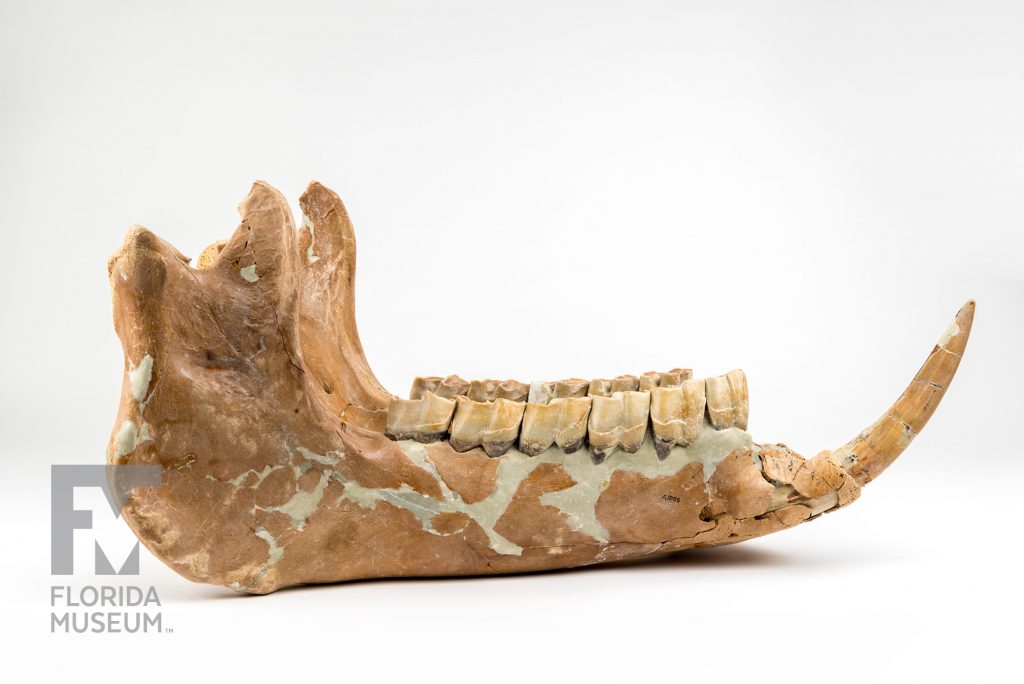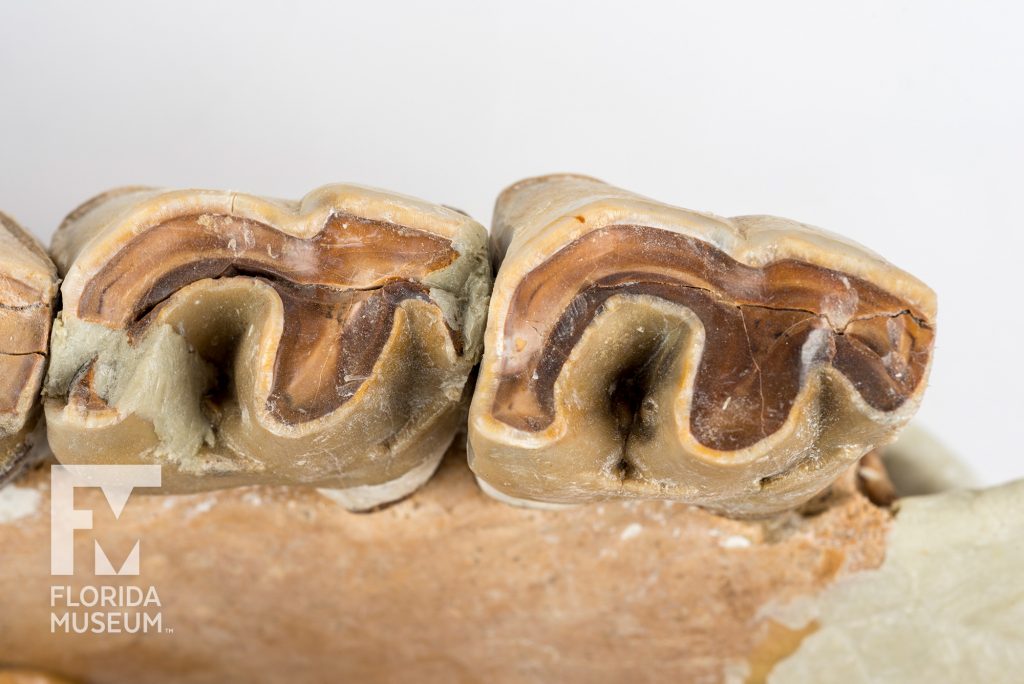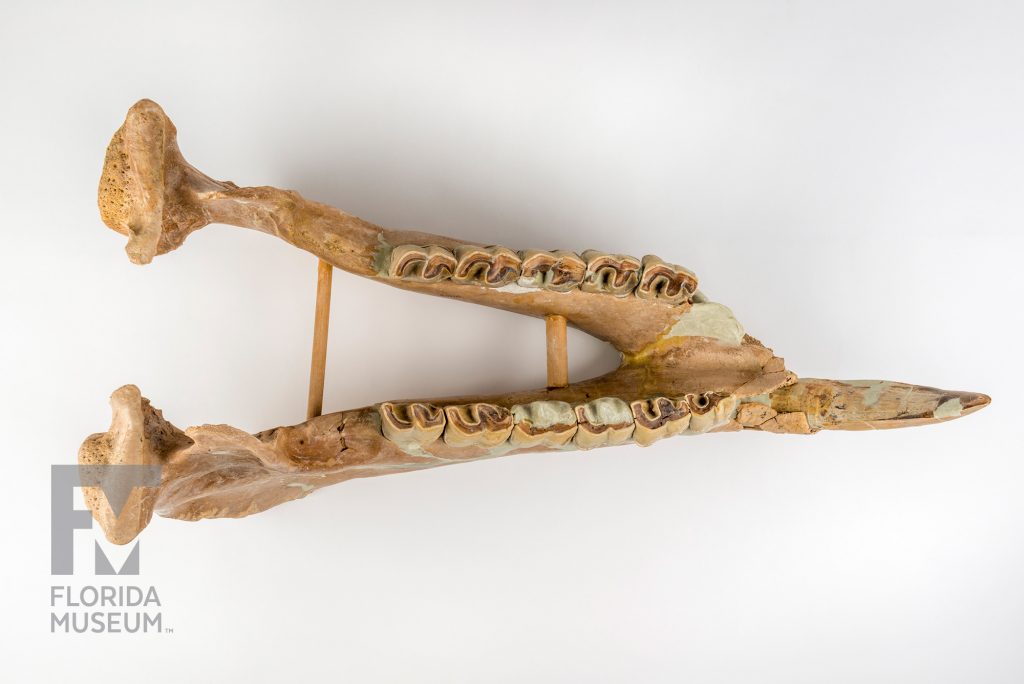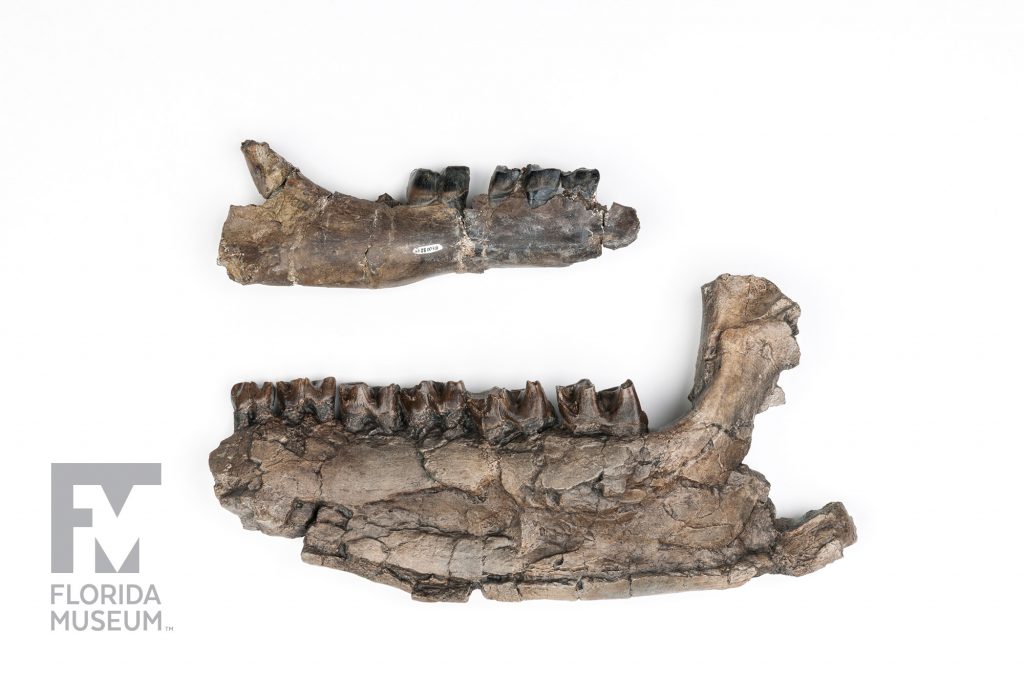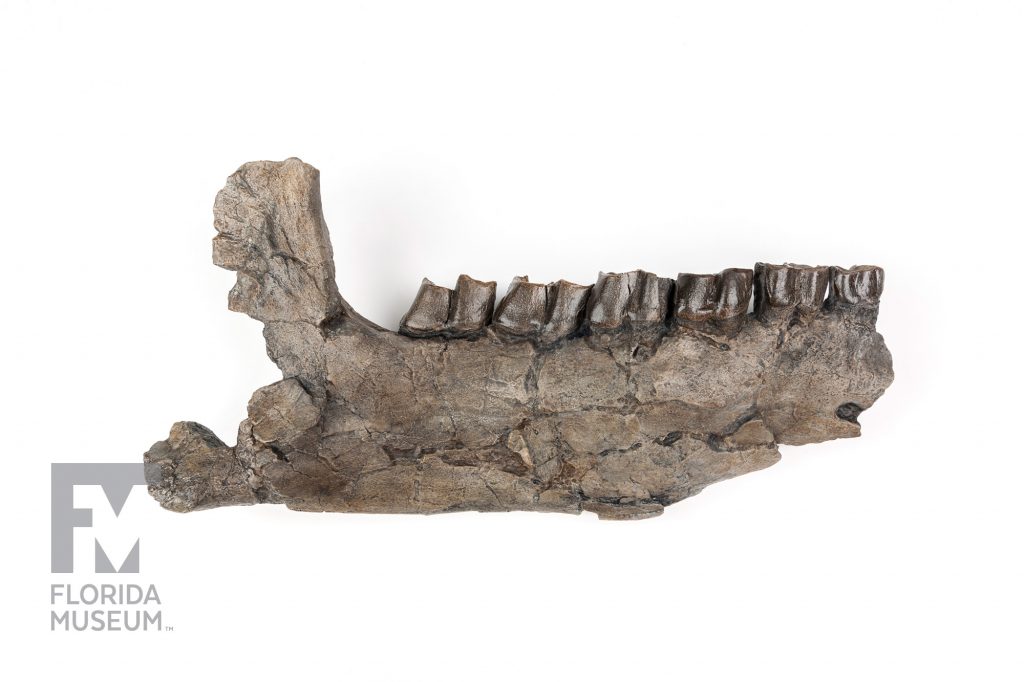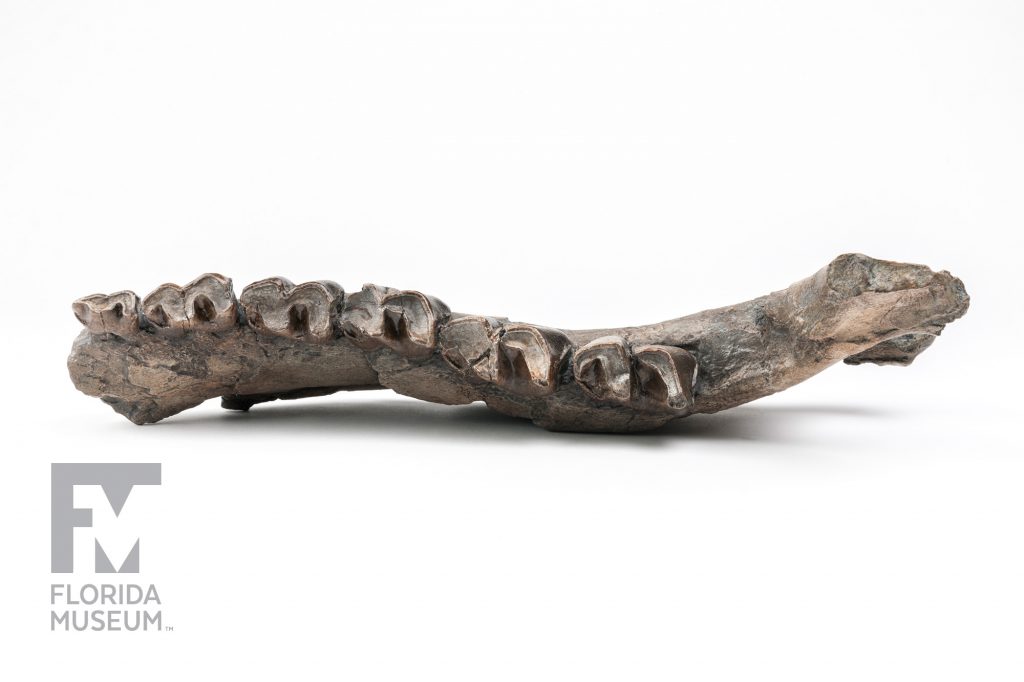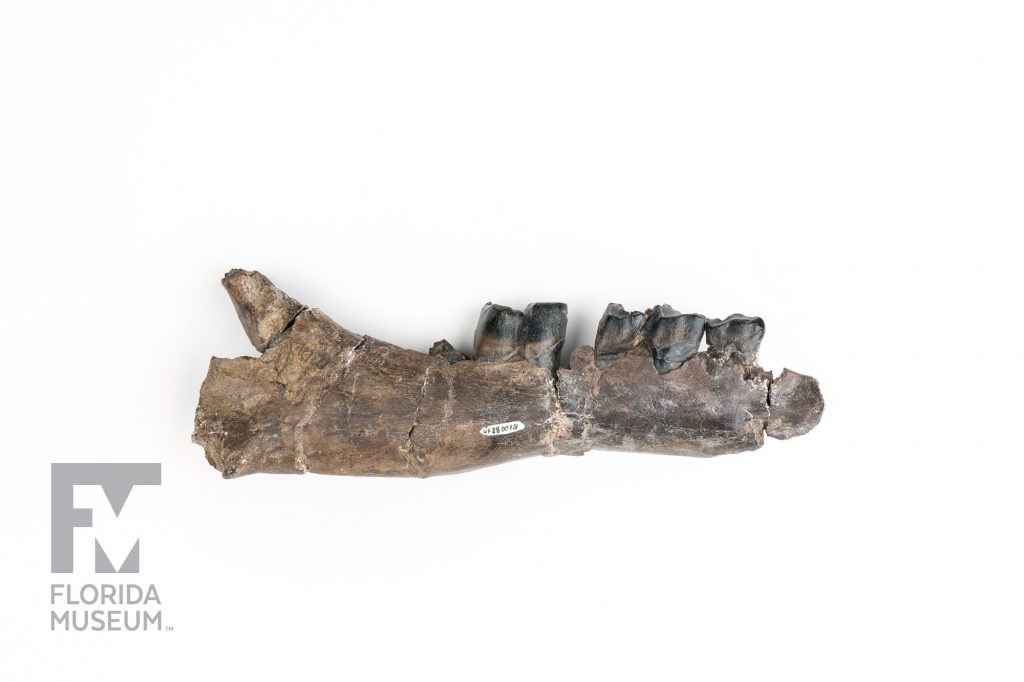Rhinos originated in North America 55–50 million years ago, and were common in Florida until their extinction ~5 million years ago. The extinct Floridaceras whitei occurs in the fossil record of both Florida and Panama.
Summary
Rhinoceros Jaws
Florida Rhino (Aphelops mutilus)
From Alachua Co., Florida
Lived ~8 million years ago
Panama Rhino (Floridaceras whitei)
Adult (cast) and Juvenile
From the Republic of Panama, Central America
Lived ~19 million years ago
Collection
Story
Although we think of rhinos today as living in Africa and Asia, they once had a much wider distribution. In North America rhinos were common, particularly in the Miocene Epoch between about 25 to 7 million years ago. Rhinos got as far south in North American as Panama, as shown by this lower jaw. They were particularly common in Florida, including the mounted skeleton in the Fossil Hall as well as this lower jaw. The lower jaw from Florida is from an 8-million-year-old fossil site from near the town of Newberry just west of Gainesville. The large tusk-like tooth in the front of the lower jaw tells us this was a male individual. This particular kind of rhinoceros did not have a horn to protect itself — they had large tusks formed by their incisor teeth.
Richard Hulbert
Collection Manager, Vertebrate Paleontology*
Florida Museum of Natural History
Exhibit
On display Sept. 23, 2017-Jan. 7, 2018, Rare, Beautiful & Fascinating: 100 Years @FloridaMuseum celebrated the Museum’s rich history. Each Museum collection was asked to contribute its most interesting items and share the stories that make them special. Though the physical exhibit is closed, this companion website remains online, providing an opportunity to experience the Florida Museum’s most treasured specimens.
Exhibit Area: Objects Tell Stories
Theme: Rhinos of the Past
 Want to see more? Explore more than 300 breathtaking color photos of plants, animals, fossils and cultural heritage materials from the Florida Museum of Natural History’s collections in the award-winning book All Things Beautiful available from the University Press of Florida.
Want to see more? Explore more than 300 breathtaking color photos of plants, animals, fossils and cultural heritage materials from the Florida Museum of Natural History’s collections in the award-winning book All Things Beautiful available from the University Press of Florida.
*This title was accurate at the time the exhibit was on display in 2017. Please visit the collection website to verify current staff and student information.
